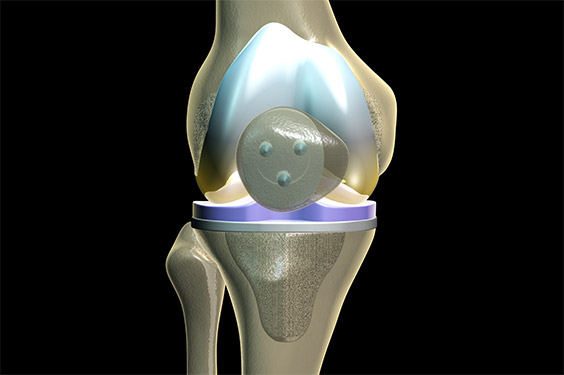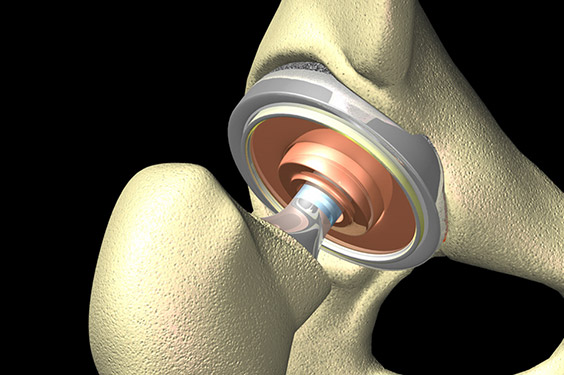Living with hip or knee pain?
In most cases, having hip or knee replacement surgery is optional, something you can delay until the time is right, or the pain becomes more than you can bear.
Current concerns about COVID-19 are also factoring into people’s decisions to put off surgery.
There’s no time like the present to consider outpatient joint replacement surgery.
Yes, it’s safe to come to Cleveland Clinic Akron General.
Cleveland Clinic Akron General has always been committed to delivering safe care. Now, in response to COVID-19, we’re taking unprecedented action to keep patients and caregivers safe in our facilities while fulfilling our mission to be the best place for care, whenever you need it.
“Many patients have been putting off preventive medical care and elective surgeries due to concerns over coronavirus. I believe that Cleveland Clinic facilities are among the safest places in healthcare today. We’re doing everything that can be done to keep patients safe,” says Paul Wilkie, MD, an orthopedic surgeon who treats patients at Cleveland Clinic Akron General. “If you can’t do the things you want to do, like to do or need to do, don’t delay joint replacement surgery any longer – you could be putting yourself at risk for more problems or pain.”
What causes joint problems?
Common causes of the joints not working properly are osteoarthritis and rheumatoid arthritis. While there are many causes for arthritis, several things may contribute to joint pain and lead to arthritis.
These include:
- Heredity (runs in the family).
- Problems with the development of the joint.
- Genetic (inherited) tendency to problems with the cartilage (the cushioning tissue at the end of the bones).
- Minor repetitive injuries.
- Severe trauma to the joint cartilage.

Implant for Total Knee Replacement
Who is a candidate for joint replacement surgery?
People who are considered for joint replacement surgery often have severe joint pain, stiffness, muscle weakness, limited motion, and swelling. Depending on the joint that is affected and the amount of damage, patients may have trouble with ordinary activities such as walking, putting on socks and shoes, getting into and out of cars, and climbing stairs.
When non-surgical treatments — including the use of anti-inflammatory medications, physical therapy and cortisone injections — are no longer helping, it may be time to consider joint replacement surgery.
To learn more about causes of hip and knee pain, conservative treatment, surgical options, recovery and more, download our free knee or hip pain treatment guides.
Outpatient Joint Replacement surgery. Is it right for you?
“Having hip or knee replacement surgery used to mean a hospital stay of several days, potentially followed by admission to a rehab center,” says Dr. Wilkie. “Today, for select patients, the surgery can be performed as an outpatient procedure. This means you’ll have the surgery in the morning, physical therapy in the afternoon, and then go home later that same day to recover.”
According to Dr. Wilkie, there are four factors to take into account when considering outpatient joint replacement surgery:
- Your overall health.
- Your level of mobility and activity prior to surgery.
- Your motivation to follow physical therapy instructions.
- Your support system.
Typically, the best candidates for outpatient joint replacement surgery are those who are under the age of 65, in overall good health, within a normal weight range and don’t smoke. And, while having support from family and friends during recovery is important, even those who live alone may qualify.
Once a doctor determines that you qualify, you’ll be scheduled for an early morning surgery. You’ll receive pain-blocking anesthetic, and by early afternoon, a physical therapist will help you get out of bed and start walking. By late afternoon, you will be walking with a walker and riding home to recover. Once home, you’ll be visited by a home care nurse as well as occupational and physical therapists.
“It’s been our experience that patients recover better in their home environment — their recovery is faster and the satisfaction greater,” says Dr. Wilkie. “In addition, hip and knee replacements are among the most satisfying surgical procedures for patients because we’re often able to relieve pain and restore function — meeting and exceeding their expectations for a full return to regular activities.”

Implant for Total Hip Replacement
Other reasons to consider outpatient joint replacement surgery.
Joint replacement in our aging and active culture is increasingly common. Arthritic joints – which affect more than half of all 60-year-olds – no longer mean you must stop being active.
New technology
There have been many advancements in joint replacement procedures since they were first performed in the 1960s. We’ve come a long way with more durable and newer materials that are allowing the newer generation of hip and knee replacements to last longer than previous designs.
Improvements in the use of pain medication
The use of spinal anesthetics, long-acting local anesthetics and regional pain blocks help pinpoint and control pain. This approach, called multimodal anesthesia, helps hit the pain from different angles, helping to avoid the use of narcotics, which have more side effects.
Most patients get a spinal injection that numbs them from the waist down for a couple of hours, along with a long-lasting local anesthetic that helps control pain for up to two days afterward. There’s no need for a pain pump for self-administered medications or IV pain killers.
Durability
Replacement joints today allow for improved motion. Hip replacements last on average about 15 years, and approximately 85% of knee implants will last 20 years. Improvements in surgical techniques, prosthetic designs, bearing surfaces, and fixation methods may allow these implants to last even longer.
Cleveland Clinic Akron General was ranked the top hospital in Akron and was rated High Performing for Adult Knee Replacement Surgery by U.S. News & World Report 2020-21 Best Hospitals.
Lorem ipsum dolor sit amet, consectetur adipiscing elit
Lorem ipsum dolor sit amet, consectetur adipiscing elit, sed do eiusmod tempor incididunt ut labore.
Risus commodo viverra maecenas accumsan lacus vel facilisis. Lorem ipsum dolor sit amet, consectetur adipiscing elit, sed do eiusmod tempor incididunt ut labore et dolore magna aliqua.
Roy Miler, MD
Lorem ipsum dolor sit amet, consectetur adipiscing elit, sed do eiusmod tempor incididunt ut labore e.
Lorem ipsum dolor sit amet, consectetur adipiscing elit, sed do eiusmod tempor incididunt ut labore et
Dolore magna aliqua. Quis ipsum suspendisse ultrices gravida. Risus commodo viverra maecenas accumsan lacus vel facilisis. Lorem ipsum dolor sit amet, consectetur adipiscing elit.
Roy Miler, MD
Lorem ipsum dolor sit amet, consectetur adipiscing elit, sed do eiusmod tempor incididunt ut labore e.
Lorem ipsum dolor sit amet, consectetur adipiscing elit, sed do eiusmod tempor incididunt ut labore et
Dolore magna aliqua. Quis ipsum suspendisse ultrices gravida. Risus commodo viverra maecenas accumsan lacus vel facilisis. Lorem ipsum dolor sit amet, consectetur adipiscing elit.
Nullam in enim ullamcorper, efficitur dui a, fermentum erat. Cras in massa eget nisi imperdiet hendrerit vel interdum tellus. Ut pellentesque neque ipsum, quis fringilla nisl volutpat vel. Cras et luctus ipsum, quis blandit ligula. Morbi elementum tincidunt nibh eu lobortis. Ut consectetur ut libero sed sagittis.
Lorem ipsum dolor sit amet, consectetur adipiscing elit, sed do eiusmod tempor incididunt ut labore et
Dolore magna aliqua. Quis ipsum suspendisse ultrices gravida. Risus commodo viverra maecenas accumsan lacus vel facilisis. Lorem ipsum dolor sit amet, consectetur adipiscing elit.
Roy Miler, MD
Lorem ipsum dolor sit amet, consectetur adipiscing elit, sed do eiusmod tempor incididunt ut labore e.
Roy Miler, MD
Lorem ipsum dolor sit amet, consectetur adipiscing elit, sed do eiusmod tempor incididunt ut labore e.
Roy Miler, MD
Lorem ipsum dolor sit amet, consectetur adipiscing elit, sed do eiusmod tempor incididunt ut labore e.

See if outpatient joint replacement surgery is an option for you. Call 330.344.2663, to see an orthopedic specialist at our Akron or Green locations.
Are you ready to schedule outpatient hip or knee replacement surgery?
For more information about outpatient hip and knee replacement surgery or to schedule an appointment, call 330.344.2663.




